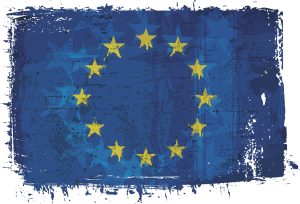You might have found yourself wondering, in what became known as the ‘Brexit years’ – or, as parents might call it, the ‘terrible twos’ – what on earth Britain’s future relationship with the EU was going to look like. By the end of that interminable process of negotiation and Parliamentary strife, many Britons (and no doubt plenty on the continent) simply wanted to put it all behind them and ignore the problems that were inevitably going to arise, particularly over Northern Ireland. While some politicians have rattled the sabre, raising the prospect of a trade war with the EU, in the basement of the City Law School, there was a surprising sense of optimism.
Those in attendance were fortunate enough to hear from an expert panel, chaired by City’s Professor Panos Koutrakos and comprised of Jill Rutter, senior research fellow at the UK in a Changing Europe think tank and former senior civil servant, Sir Jonathan Faull, chair of European public affairs at the Brunswick Group, who enjoyed a distinguished career at the European Commission, and Professor Sir Alan Dashwood KC, former director of the Legal Service of the Council of the European Union.

Ms Rutter went first, setting out five scenarios of what might happen next. The first, amusingly enough, was ‘muddling on and waiting for Sir Keir Starmer’, which could accurately sum up much of the country’s position. The second? Northern Ireland turns into a flashpoint and leads to a trade war. Not ideal. In scenario three, there is a gradual rapprochement, the return of cooperation and some collaboration in other areas. But, in the immortal words of The Strokes, is this it? Could an incoming Sir Keir try to work on the relationship? Would the EU be inclined to listen to his overtures? The final scenario is a path back to the European Economic Area, assuming the UK is happy to be a rule-taker. Yet there is, Ms Rutter finished by saying, no ready route back to Brussels.
Next it was the turn of Sir Jonathan, who led the EU’s strategic taskforce before the referendum and whom Lawbore was lucky enough to speak to after the event (you can read his interview now!). As many in the audience and the country at large will know, the questions posed by the referendum remain unanswered. Brexit is still beginning, but Sir Jonathan also said he expected a rapprochement. Why? The challenges of the coming years – pandemics, war, the rise of China, declining US interest in Europe, demography, migration, climate and the digital industrial revolution – are likely to drive the EU and the UK closer. It is by no means clear how long this might take, but the UK-EU Trade and Cooperation Agreement is and was only ever meant to be transitory.

For those hoping for a return to the European family, there was a reality check. The UK’s re-engagement will take time. That desire to re-engage is being driven by frustration – among small businesses, industry, artists – at the ‘cost of non-Europe’. The UK will be forced to find a way of negotiating this re-engagement, but that will require both goodwill at home and flexibility abroad. After all, the EU is known for accommodating idiosyncrasies. But in a message that will have resonated with many of the fresh-faced law students in the audience, the task of building a closer relationship – perhaps even rejoining – might be one for a younger generation that was never part of the EU to begin with.
This feeling of quiet optimism was shared by Professor Dashwood, who said that while he did not think the UK would rejoin the single market or customs union in his lifetime, there was a keener awareness of the harm being caused by Brexit, and how it might be addressed, both in the media and academic writing. As he put it, the grown-ups are in charge again (this event took place, after all, shortly after the Liz Truss omnishambles). An incremental approach is needed to improve and supplement the Trade and Cooperation Agreement, but the best area in which to lay foundations for a more structured relationship is foreign and security policy. That means going beyond trade disputes and therein lies some hope, particularly because the UK has been seen as a staunch ally against Russia. Even the European Court of Justice bogeyman can be avoided by favouring a dispute mechanism over ‘dragging the UK kicking and screaming’ before judges in Luxembourg.

It was a pleasure to hear from such eminent figures on where the UK’s often fraught relationship with the EU is heading, and refreshing to feel a sense of optimism after all these years of banal three-word slogans (looking at you, Theresa May and Boris Johnson) about what might be achieved by future City graduates armed with knowledge of the EU’s institutions and a desire to have their say after being unable to in 2016. As the old saying goes, time heals all wounds.
Chris King is a GDL student at the City Law School and a future trainee solicitor. He is a former national newspaper journalist, and is interested in environmental, media and public law.

